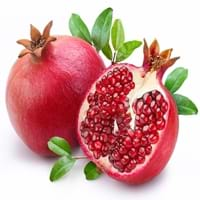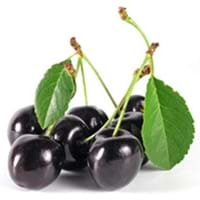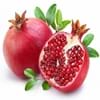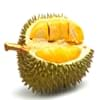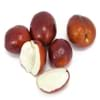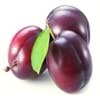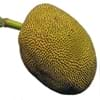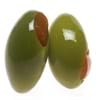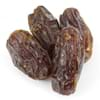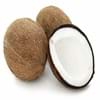Health Benefits
Cancer prevention, Heart care, Helps in cartilage regeneration, Improves stomach health, Increase in haemoglobin, Increases metabolic rate, Prevents constipation
Anti-aging benefits, Anti-inflammatory properties, Arthritis treatment, Cancer prevention, Helps body to rest and sleep, Lower blood pressure, Prevents diabetes, Prevents strokes, Reduces risk of heart disease
General Benefits
Boosts immune system, Controls blood pressure, Controls blood sugar levels, Digestive aid, Maintains healthy cholesterol level
Fights against infections, Fights Tooth Decay, Helps in weight loss, Relieves pain, Treatment of migraine
Skin Benefits
Anti-aging benefits, Skin rejuvenation, Treatment of acne
Anti-aging benefits, Fairness, Hydrates skin, Prevents skin cancer, Skin repair, Treatment of acne
Hair Benefits
Prevents hair loss, Promotes longer and healthier hair, Treatment of dandruff
Cure for hair loss, Increasing hair volume, Prevents hair loss, Strengthening of hair
Allergy Symptoms
Abdominal pains, Anaphylaxis, Itching
Abdominal cramps, Anaphylaxis, Diarrhea, Hoarseness, Itchy eyes, Nausea, Pollen allergies, Sore eyes, Vomiting, Watery eyes, Wheezing
Side Effects
Allergic reaction, Cold, Breathing difficulty, Irritation, Swelling
High doses of black cherry bark can be poisonous and even fatal.
Lactating Women
Yes
Not Available
Best Time to Eat
Best if taken as a breakfast (or empty stomach), As a snack in the late afternoon, Eat the fresh ones, avoid mixing with any other foods, don't eat after meal., Morning time (before lunch)
Best if taken as a breakfast (or empty stomach), Don't eat after meal, Morning time (before lunch)
Vitamin B1 (Thiamin)
Not Available
Vitamin B5 (Pantothenic Acid)
Vitamin B6 (Pyridoxin)
Not Available
Vitamin B9 (Folic acid)
Not Available
Vitamin C (Ascorbic Acid)
Not Available
Vitamin E (Tocopherole)
Not Available
Vitamin K (Phyllochinone)
Not Available
Lutein+Zeaxanthin
Not Available
Phytosterol
Not Available
Calories in Fresh Fruit with Peel
Not Available
Calories in Fresh Fruit without Peel
Not Available
Calories in Frozen Form
Not Available
Not Available
Calories in Dried Form
Not Available
Calories in Canned Form
Not Available
Not Available
Calories in Juice
Not Available
Calories in Jam
Not Available
Calories in Pie
Not Available
Varieties
Balegal, Crab, Cloud, Francis, Freshman and Granada
alabamensis, capuli , eximia and hirsuta
Color
Dark red, Light pink-red
Black
Taste
Juicy, Sweet
Sweet-Sour
Origin
India, Iran
North America
Soil Type
Clay, Sand
Not Available
Climatic Conditions
Cold, Dry, Hot
Cold
Facts about
- Pomegranate means apple with many seeds.
- It was called as the “apple of Grenada” in early English.
- In Hinduism, this fruit symbolizes prosperity and fertility.
- Pomegranate trees can live upto 200 years.
- Black cherry is deciduous tree that belongs to the family of roses.
- Some foods made from Black Cherry fruit include jelly and wine.
- Inner bark of black cherry is used in the manufacture of cough syrup.
Other Countries
Africa, India, Middle east, Pakistan
Austria, Bulgaria, Chile, China, France, Greece, Iran, Italy, Macedonia, Poland, Romania, Russia, Serbia, Spain, Syria, Ukraine, United States of America, Uzbekistan
Top Importer
Europe
France
Top Exporter
India
Turkey
Botanical Name
Punica granatum
Prunus Serotina
Synonym
Punica malus
wild black cherry, rum cherry and mountain black cherry
Subkingdom
Tracheobionta
Tracheobionta
Division
Magnoliophyta
Magnoliophyta
Class
Magnoliopsida
Magnoliopsida
Family
Lythraceae
Rosaceae
Species
P. granatum
P. serotina
Generic Group
Pomegranate
Cherry
Difference Between Pomegranate and Black cherry
We might think that Pomegranate and Black cherry are similar with respect to nutritional value and health benefits. But the nutrient content of both fruits is different. Pomegranate and Black cherry Facts such as their taste, shape, color, and size are also distinct. The difference between Pomegranate and Black cherry is explained here.
The amount of calories in 100 gm of fresh Pomegranate and Black cherry with peel is Not Available and 63.00 kcal and the amount of calories without peel is 83.00 kcal and Not Available respectively. Thus, Pomegranate and Black cherry belong to High Calorie Fruits and Low Calorie Fruits category.These fruits might or might not differ with respect to their scientific classification. The order of Pomegranate and Black cherry is Myrtales and Rosales respectively. Pomegranate belongs to Lythraceae family and Black cherry belongs to Rosaceae family. Pomegranate belongs to Punica genus of P. granatum species and Black cherry belongs to Prunus genus of P. serotina species. Beings plants, both fruits belong to Plantae Kingdom.
